Mercedes E-Class Wagon vs Land Rover Range Rover Sport – Differences & prices compared
Compare performance, boot capacity, efficiency and price at a glance.
Find out which car is the better choice for you – Mercedes E-Class Wagon or Land Rover Range Rover Sport?
Costs and Efficiency:
Looking at overall running costs, both models reveal some interesting differences in everyday economy.
Mercedes E-Class Wagon has a convincingly advantage in terms of price – it starts at 52600 £, while the Land Rover Range Rover Sport costs 78600 £. That’s a price difference of around 25968 £.
Fuel consumption also shows a difference: Mercedes E-Class Wagon manages with 1.70 L and is therefore clearly more efficient than the Land Rover Range Rover Sport with 2.70 L. The difference is about 1 L per 100 km.
As for range, the Land Rover Range Rover Sport performs minimal better – achieving up to 118 km, about 9 km more than the Mercedes E-Class Wagon.
Engine and Performance:
Power, torque and acceleration say a lot about how a car feels on the road. This is where you see which model delivers more driving dynamics.
When it comes to engine power, the Land Rover Range Rover Sport has a slight edge – offering 635 HP compared to 585 HP. That’s roughly 50 HP more horsepower.
In acceleration from 0 to 100 km/h, the Land Rover Range Rover Sport is minimal quicker – completing the sprint in 3.80 s, while the Mercedes E-Class Wagon takes 4.10 s. That’s about 0.30 s faster.
In terms of top speed, the Land Rover Range Rover Sport performs a bit better – reaching 290 km/h, while the Mercedes E-Class Wagon tops out at 250 km/h. The difference is around 40 km/h.
There’s also a difference in torque: Land Rover Range Rover Sport pulls minimal stronger with 800 Nm compared to 750 Nm. That’s about 50 Nm difference.
Space and Everyday Use:
Cabin size, boot volume and payload all play a role in everyday practicality. Here, comfort and flexibility make the difference.
Both vehicles offer seating for 5 people.
In curb weight, Mercedes E-Class Wagon is evident lighter – 1900 kg compared to 2390 kg. The difference is around 490 kg.
In terms of boot space, the Land Rover Range Rover Sport offers minimal more room – 647 L compared to 615 L. That’s a difference of about 32 L.
In maximum load capacity, the Mercedes E-Class Wagon performs slightly better – up to 1830 L, which is about 339 L more than the Land Rover Range Rover Sport.
When it comes to payload, Land Rover Range Rover Sport evident takes the win – 830 kg compared to 645 kg. That’s a difference of about 185 kg.
Who wins the race?
The Land Rover Range Rover Sport proves to be barely ahead and therefore becomes our DriveDuel Champion!
Land Rover Range Rover Sport is the better all-rounder in this comparison.
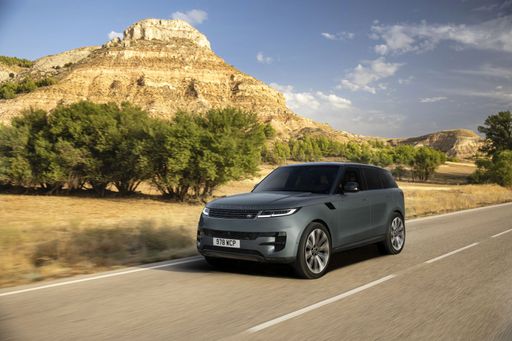
Land Rover Range Rover Sport
Mercedes E-Class Wagon
The Mercedes-Benz E-Class Wagon offers a harmonious blend of luxury and practicality, making it a favourite for those who value both style and functionality. Its sleek exterior design is matched by a sophisticated interior that provides a comfortable and spacious environment for both driver and passengers. This vehicle also boasts advanced technology features, ensuring a smooth and connected driving experience.
details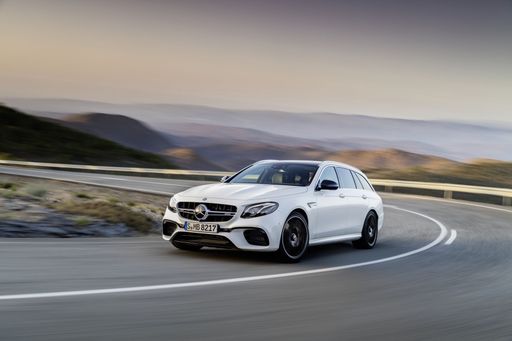 @ group-media.mercedes-benz.com
@ group-media.mercedes-benz.com
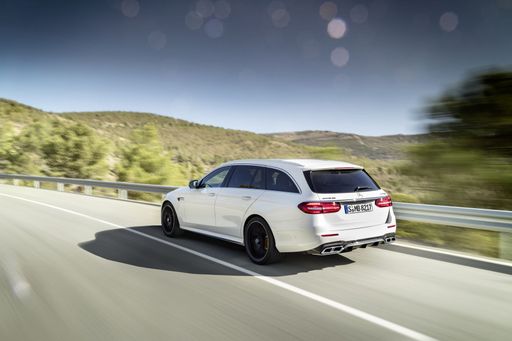 @ group-media.mercedes-benz.com
@ group-media.mercedes-benz.com
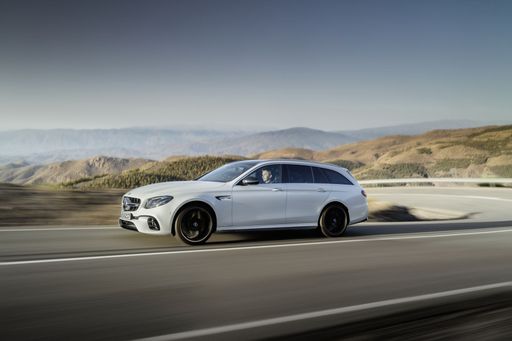 @ group-media.mercedes-benz.com
@ group-media.mercedes-benz.com
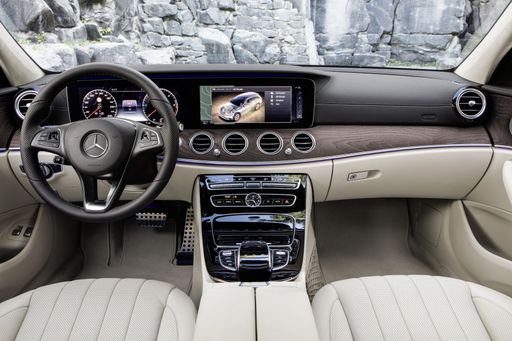 @ group-media.mercedes-benz.com
@ group-media.mercedes-benz.com
Land Rover Range Rover Sport
The Land Rover Range Rover Sport exudes a commanding presence, combining luxury with exceptional off-road capabilities. Its sleek, modern design is complemented by a meticulously crafted interior that offers both comfort and advanced technology. With its powerful performance and refined handling, this vehicle is ideal for both urban environments and adventurous terrains.
details @ media.landrover.com
@ media.landrover.com
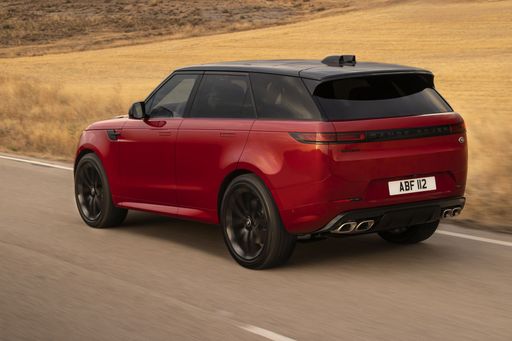 @ media.landrover.com
@ media.landrover.com
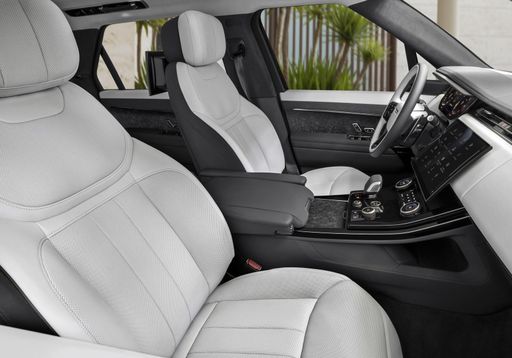 @ media.landrover.com
@ media.landrover.com

|

|
|
|
|
Costs and Consumption |
|
|---|---|
|
Price
52600 - 121800 £
|
Price
78600 - 175700 £
|
|
Consumption L/100km
1.7 - 7.9 L
|
Consumption L/100km
2.7 - 11.7 L
|
|
Consumption kWh/100km
-
|
Consumption kWh/100km
-
|
|
Electric Range
97 - 109 km
|
Electric Range
116 - 118 km
|
|
Battery Capacity
21.20 kWh
|
Battery Capacity
31.80 kWh
|
|
co2
44 - 181 g/km
|
co2
61 - 266 g/km
|
|
Fuel tank capacity
50 - 66 L
|
Fuel tank capacity
71 - 90 L
|
Dimensions and Body |
|
|---|---|
|
Body Type
Estate
|
Body Type
SUV
|
|
Seats
5
|
Seats
5
|
|
Doors
5
|
Doors
5
|
|
Curb weight
1900 - 2435 kg
|
Curb weight
2390 - 2810 kg
|
|
Trunk capacity
460 - 615 L
|
Trunk capacity
647 L
|
|
Length
4949 - 4959 mm
|
Length
4946 - 4970 mm
|
|
Width
1880 mm
|
Width
2043 mm
|
|
Height
1469 - 1497 mm
|
Height
1814 - 1820 mm
|
|
Max trunk capacity
1675 - 1830 L
|
Max trunk capacity
1491 L
|
|
Payload
540 - 645 kg
|
Payload
640 - 830 kg
|
Engine and Performance |
|
|---|---|
|
Engine Type
Petrol MHEV, Plugin Hybrid, Diesel MHEV
|
Engine Type
Plugin Hybrid, Petrol MHEV, Diesel MHEV
|
|
Transmission
Automatic
|
Transmission
Automatic
|
|
Transmission Detail
Automatic Gearbox
|
Transmission Detail
Automatic Gearbox
|
|
Drive Type
All-Wheel Drive, Rear-Wheel Drive
|
Drive Type
All-Wheel Drive
|
|
Power HP
186 - 585 HP
|
Power HP
249 - 635 HP
|
|
Acceleration 0-100km/h
4.1 - 8.8 s
|
Acceleration 0-100km/h
3.8 - 7.7 s
|
|
Max Speed
213 - 250 km/h
|
Max Speed
206 - 290 km/h
|
|
Torque
320 - 750 Nm
|
Torque
570 - 800 Nm
|
|
Number of Cylinders
4 - 6
|
Number of Cylinders
6 - 8
|
|
Power kW
137 - 430 kW
|
Power kW
183 - 467 kW
|
|
Engine capacity
1993 - 2999 cm3
|
Engine capacity
2997 - 4395 cm3
|
General |
|
|---|---|
|
Model Year
2024 - 2025
|
Model Year
2025
|
|
CO2 Efficiency Class
G, E, F, B, D
|
CO2 Efficiency Class
B, G
|
|
Brand
Mercedes-Benz
|
Brand
Land Rover
|
What drivetrain options does the Mercedes E-Class Wagon have?
The Mercedes E-Class Wagon is offered with All-Wheel Drive or Rear-Wheel Drive.
The prices and data displayed are estimates based on German list prices and may vary by country. This information is not legally binding.
